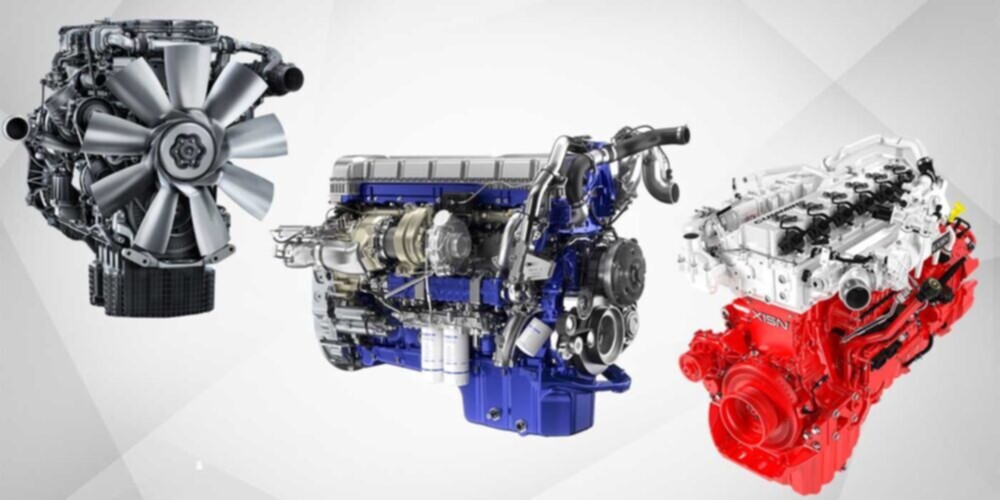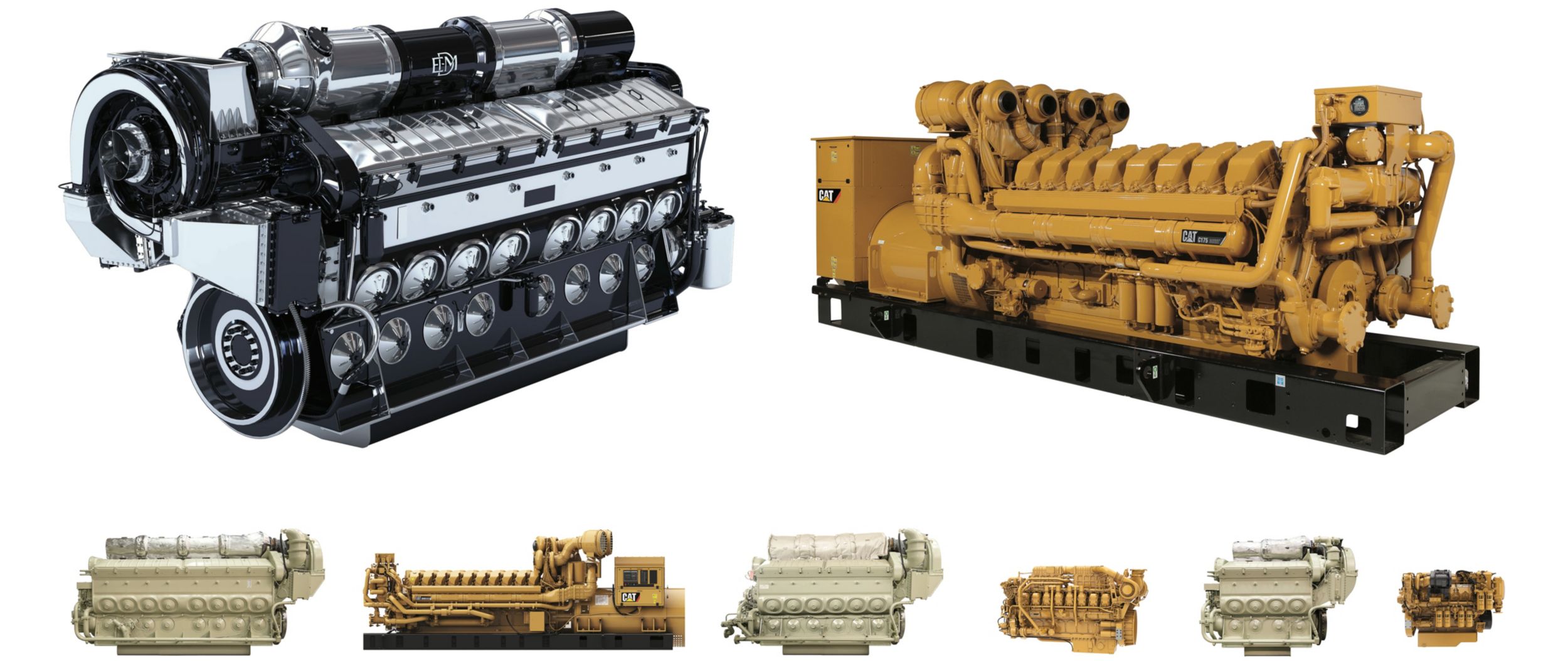The Impact of Cutting-edge Engine Technologies on Power Performance and Environmental Sustainability
In the world of transportation and industrial machinery, the constant mission for improved energy efficiency and reduced ecological influence has actually led to considerable advancements in engine innovations. From the progressive shift towards hybrid and electrical systems to the integration of turbocharging for enhanced effectiveness, the landscape of engines is progressing swiftly.
Evolution of Engine Technologies
The development of engine technologies over the years has been marked by regular development and refinement in quest of boosted performance and performance. From the very early days of inner combustion engines to the cutting-edge hybrid and electrical powertrains of today, the evolution of engine modern technologies has been driven by an unrelenting quest for enhanced fuel efficiency and reduced discharges.
One considerable landmark in this evolution was the growth of turbocharging and straight injection systems, which significantly improved engine power output while improving fuel effectiveness. These modern technologies permitted for smaller, extra light-weight engines that could supply the performance of larger ones without jeopardizing on effectiveness.
Furthermore, innovations in materials scientific research have led to the extensive adoption of light-weight products such as aluminum and carbon fiber in engine building. This has not only minimized general lorry weight but has actually likewise boosted engine effectiveness by reducing energy losses connected with inertia and friction.
Advantages of Electric and Hybrid Solutions
With the expanding emphasis on sustainability and power effectiveness, what advantages do hybrid and electrical systems use in the world of engine technologies? Electric and hybrid systems present various benefits that add to a much more energy-efficient and lasting future. One of the key benefits is the substantial decrease in greenhouse gas emissions compared to standard interior burning engines. Electric automobiles create zero tailpipe emissions, causing enhanced air top quality and decreased environmental influence. In addition, electrical and hybrid systems are a lot more energy-efficient, converting a higher portion of saved energy right into propulsion contrasted to conventional engines. This efficiency leads to lower energy usage and operating costs over the lorry's life time. Electrical automobiles offer regenerative stopping systems that record and save energy usually lost during braking, additionally enhancing energy efficiency (engines for africa). Hybrid systems combine the benefits of electric propulsion with the versatility of a burning engine, offering expanded driving varieties and lowering range anxiety for customers transitioning to electrical lorries. In general, hybrid and electric systems play a crucial function in advancing energy efficiency and ecological sustainability in the transportation market.
Turbocharging for Improved Performance
Turbocharging jobs by making use of a generator to force even more air into the combustion chamber, enabling for better gas combustion and increased power outcome without a considerable boost in engine dimension. By making the most of the effectiveness of the combustion process, turbocharged engines can attain enhanced fuel economic climate and decreased emissions, contributing to environmental sustainability. The widespread fostering of turbocharged engines in both gas and diesel vehicles demonstrates their efficiency in balancing performance, performance, and environmental impact.
Utilizing Alternative Gas
Utilizing alternative gas offers an encouraging method for reducing carbon exhausts and expanding the power resources utilized in transportation. As the world aims to battle climate modification and decrease dependence on nonrenewable fuel sources, alternate fuels have actually acquired significant attention for their potential ecological and financial advantages.
Biofuels, such as ethanol and biodiesel, are stemmed from eco-friendly resources like algae, sugarcane, and corn, using a cleaner burning choice to traditional gas and diesel. These fuels can be combined with existing petroleum fuels or made use of in dedicated engines, supplying a pathway to lower greenhouse gas exhausts and enhance air high quality.
In addition, hydrogen fuel cells have become an encouraging modern technology for zero-emission transportation. engines for africa. By transforming hydrogen gas into electricity to power electrical motors, fuel cell vehicles create his response only water vapor as a result, getting rid of damaging tailpipe emissions completely
Along with reducing carbon emissions, alternate fuels can also enhance energy safety and security by diversifying the gas mix and reducing dependence on imported oil. Embracing alternate fuels in transportation is a critical action towards accomplishing an extra sustainable and eco-friendly future.

Future potential customers and environmental benefits
The ecological advantages of alternate fuels and their potential for long-term sustainability are vital factors to consider in the change in the direction of cleaner power sources. Different gas, such as biofuels, hydrogen, and electricity, deal significant environmental benefits compared to traditional nonrenewable fuel sources. These gas produce lower degrees of greenhouse gas emissions, lowering air pollution and mitigating environment modification influences. Furthermore, alternate fuels can assist diversify energy resources, boosting energy safety and security and lowering dependence on finite resources.
The future prospects for alternative gas in the transport sector are appealing. Advancements in modern technology remain to improve the effectiveness and cost of different gas lorries, making them extra accessible to consumers. Federal governments around the world are additionally implementing plans to incentivize the adoption of alternate fuels, further driving their growth. As r & d initiatives expand, the potential for even greener and more sustainable fuel options raises, leading the way for a cleaner and extra eco pleasant transport industry. By accepting different fuels and cutting-edge modern technologies, the path towards an extra lasting future becomes significantly possible.

Final Thought
To conclude, innovative engine technologies have played a critical duty in enhancing power efficiency and promoting environmental sustainability. engines for africa. The advancement of engine innovations, fostering of electric and hybrid systems, use of turbocharging, and expedition of alternative fuels have all added to reducing exhausts and boosting performance. The ecological benefits of these developments are clear, and there is terrific possible for more progression in the future. Engine modern technologies proceed to be a vital area of web link focus for accomplishing a more lasting future.
In the realm of transport and commercial machinery, the constant quest for improved energy performance and minimized ecological impact has led to substantial developments in engine modern technologies. Turbocharging works by utilizing a turbine to force even more my company air right into the burning chamber, permitting for much better fuel burning and enhanced power output without a considerable boost in engine dimension. By optimizing the effectiveness of the burning procedure, turbocharged engines can attain improved gas economy and reduced emissions, adding to environmental sustainability. Alternate gas, such as biofuels, hydrogen, and power, offer considerable environmental benefits compared to standard fossil gas. The evolution of engine innovations, adoption of electric and hybrid systems, usage of turbocharging, and expedition of alternate fuels have all added to raising and minimizing exhausts efficiency.
Comments on “Engines for Africa Available Now! Visit Our Relied On Car Components Shop”